My Worst Media Interview Ever
I recently received this tweet from a longtime friend of the blog:
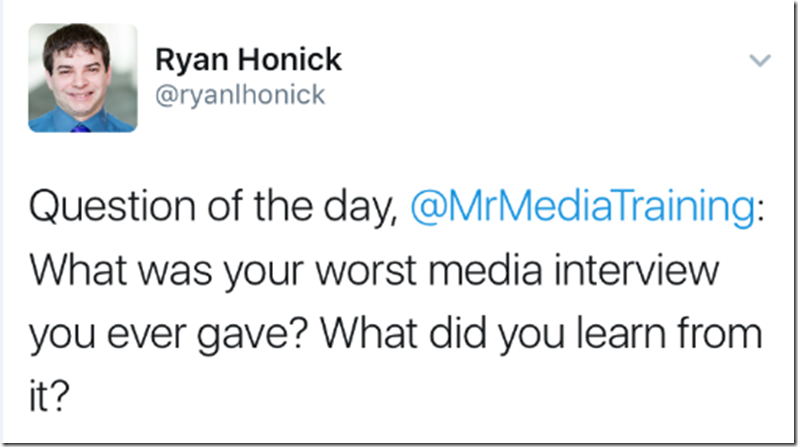
Fortunately, I’ve never had an outright media disaster. But my mind immediately went to an interview I gave to a magazine writer in 2010 about what scientists should expect from their interactions with the media.
The story that resulted from that interview was harmless. But my experience during the interview was bruising, and taught me (or at least reinforced for me) a few important lessons.
First, it’s important to know your own triggers.
Things began to go south when I started explaining why it’s important to develop messages prior to an interview. The reporter bristled at that notion—to put it mildly—and insisted that any meaningful exchange between reporter and source must be a freewheeling and candid conversation.
I was taken aback by her unwillingness to recognize what was obvious to me: that media spokespersons are professionally entitled—even obligated—to have a strategic purpose for their communications. Simply following a reporter into any topic, without any goal in mind, can lead to great copy for the reporter—but a disaster for the interviewee.
I tried to explain that multiple times and in multiple ways. She wouldn’t concede even the smallest point. And that played into one of my triggers—getting frustrated, even exasperated, when a person I’m speaking with is unable or unwilling to at least try to see my viewpoint. Instead of changing my approach, I became more insistent, even argumentative.
I’m seven years older and wiser now. Some of those rough edges have evaporated. Remaining cognizant of my own emotional triggers helps me avoid making the same mistakes again.
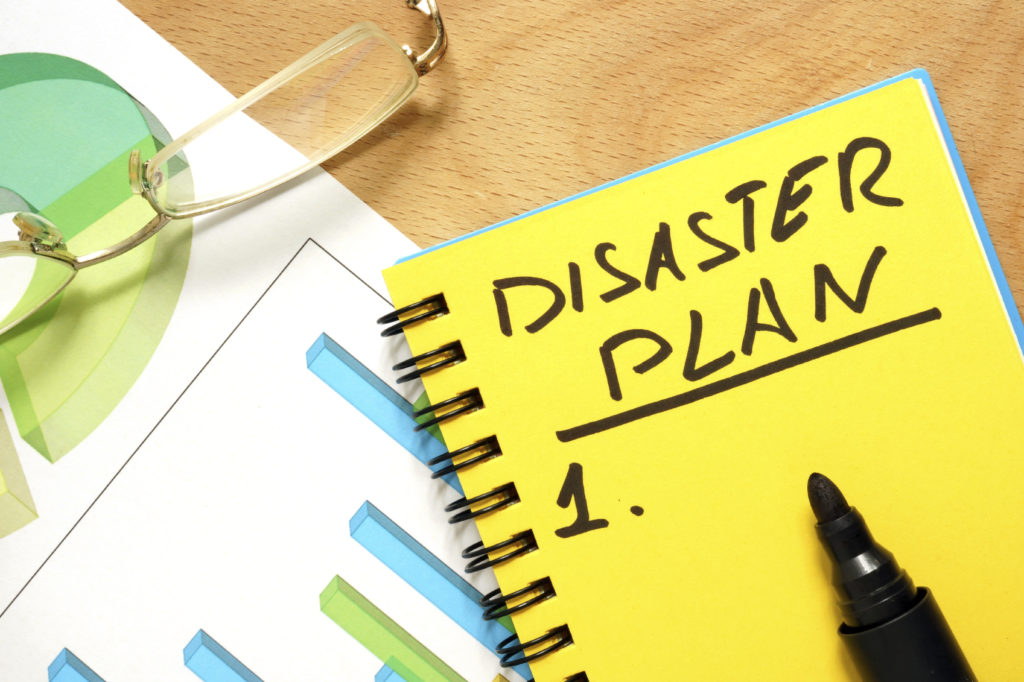
Second, always remember the reporter’s role.
Only now, seven years later, did it even occur to me that she might not have been skeptical of my thinking at all. I suspect she was—but it’s also possible that she was just asking challenging questions to force me to articulate my view better.
My personal tendency is to ask challenging questions not only to oppose an idea, but to understand it better. When someone offers brilliant replies to my questions, it forces me to stop and reconsider my previously held beliefs. Whatever this reporter’s motivations, I should have approached the interview as if she wasn’t opposed to my argument, but rather offering me an opportunity to clarify it with better examples and stronger reasoning.
Third, emphasize areas of agreement.
I was so busy arguing my viewpoint that I failed to create a bridge between us. I should have emphasized that honesty—the thing that was most important from her perspective—was crucially important to me, too. The term “media relations” implies a relationship—and any productive relationship has to be built on a foundation of trust.
I should have pointed out that being “on message” does not mean being evasive or refusing to participate in an honest conversation, but rather that of the myriad ways you could answer any given question, you’ve decided to offer a response that reflects one of the main themes that drives your work.
In my experience, most reporters prefer a spokesperson who has come prepared with stories, data points, and quotes that cleanly articulate their point of view. The opposite of that—a spokesperson who gets on the phone without having done any preparation—often results in an unfocused and time-consuming interview.
In hindsight, the reporter and I surely agreed on some of the basics—and it would have been worth our time to begin there.
READERS: What is the worst media interview you ever gave? What did you learn from it? Please leave your experience in the comments section below.
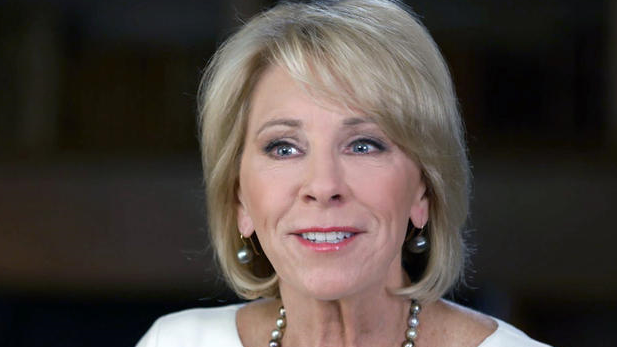
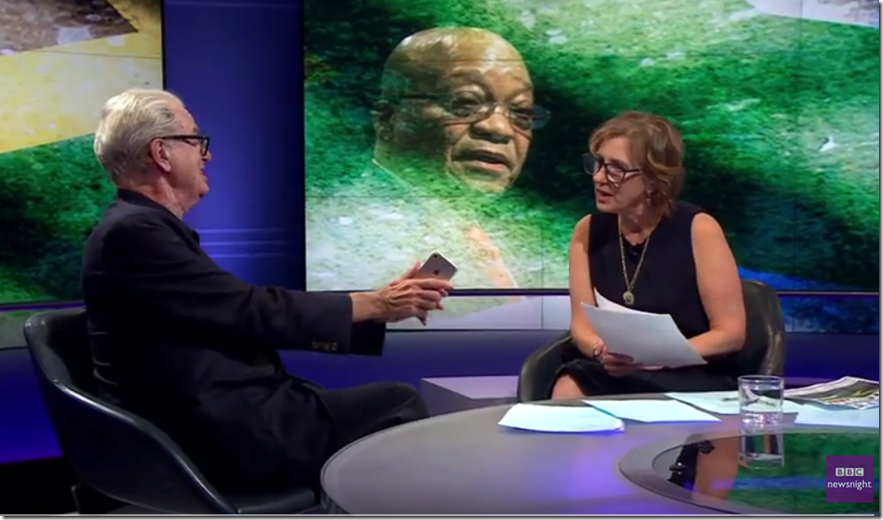
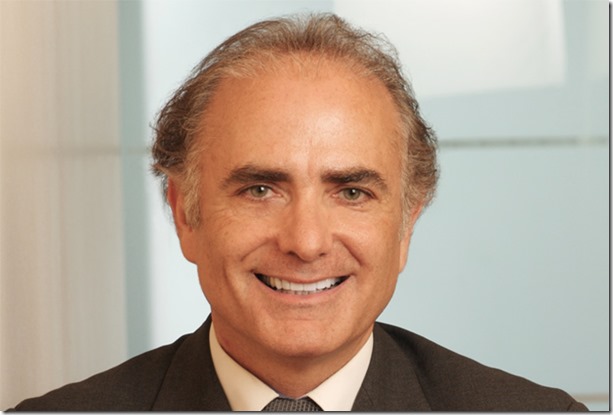
Oh I remember it well. It was my first week on the job. A newspaper reporter called me directly. I was certainly not up to speed on the many departmental files that could generate media interest. My boss had gone home for the day and there was no one else to around. The reporter asked some interesting questions about a project that hadn’t been announced, and instead of saying “I will find out and get back to you asap” I said “I really don’t know but I will find out for you.” So unfortunately the reporter wrote an article which was immediately posted online and it was filled with incorrect information and one quote from me, you guessed it, “When questioned the department spokesperson xx said she didn’t know anything”. Burned once, but a good learning experience.
Hi Dee,
Thanks for your comment. Ouch, that’s a tough one! It’s also, unfortunately, a relatively common one. I wrote about a couple of similar incidents on my blog last year in this post called “When Throwaway Comments Become Your Lead Quote.”
I appreciate you reading and leaving your experience for others!
Best,
Brad